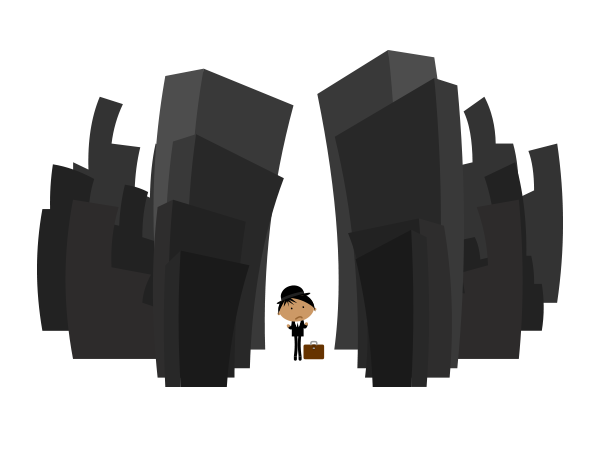
Anxiety
Learn more about the sources, symptoms and treatments of anxiety
What is anxiety?
Anxiety is a normal, if unpleasant, part of life, and it can affect us all in different ways and at different times.
Anxiety is something that can persist whether or not the cause is clear to the sufferer. It is a feeling of fear, worry, and uneasiness, sometimes generalised and unfocused or as a reaction to a situation that is felt by the individual as menacing.
There are times when anxiety is identifiable to specific events; a traumatic incident, or having undergone a significant life event (moving house, getting divorced, having surgery). However, sometimes the cause of anxiety is intangible and it causes distress. One way of thinking about anxiety is to imagine a bucket of water with drops of water slowly filling it up. Eventually the bucket will overflow, in the same way if we continue to add stress to our lives, at some point we become overwhelmed. It may be as simple as one commute or after school activity too many that tips us over. This can be a useful way of looking at anxiety, as it explains why sometimes it can seem to come out of the blue with no significant trigger.
How does it make you feel?
Anxiety can make a person imagine that things in their life are worse than they really are, and prevent them from confronting their fears. Often, they will think they are going mad, or that some psychological imbalance is at the heart of their woes.
What is important is the recognition that anxiety is normal and exists due to a set of bodily functions that have existed in us from our cave-man days. The genetic makeup of the human system is designed to make us hyper-alert, boosting adrenaline that would increase the heart rate and increase the amount of oxygen going to our limbs so we were better able to fight or run from danger. This is known as the “fight or flight” response. This response was imperative in the days of the cave man as it was a way of warding off and escaping real danger. The “butterflies in the stomach” feeling that many associate with anxiety is this mechanism kicking in, but instead of being used to avoid immediate danger, it is often wrongly and inappropriately activated in a person in the present times and during normal, everyday situations when stress has built up, often unknowingly.
Main symptoms of anxiety
People often experience physical, psychological and behavioural symptoms when they feel anxious or stressed. Some of the most common physical symptoms of anxiety are:
- Increased heart rate
- Increased muscle tension
- “Jelly legs”
- Tingling in the hands and feet
- Hyperventilation (over breathing)
- Dizziness
- Difficulty in breathing
- Wanting to use the toilet more often
- Feeling sick
- Tight band across the chest area
- Tension headaches
- Increased perspiration
- Dry mouth
- Shaking
- Choking sensations
Sources of anxiety
Some of the most common psychological symptoms (the thoughts or altered perceptions we have) of anxiety are:
- Thinking that you may lose control and/or go “mad”
- Thinking that you might die
- Thinking that you may have a heart attack/be sick/faint/have a brain tumour
- Feeling that people are looking at you and observing your anxiety
- Feeling as though things are speeding up/slowing down
- Feeling detached from your environment and the people in it
- Feeling like wanting to run away/escape from the situation
- Feeling on edge and alert to everything around you
The most common behavioural RESPONSE (the things we do when we are anxious) is avoidance. Although avoiding an anxiety provoking situation produces immediate relief from the anxiety, it is only a short – term solution. This means that whilst it may seem like avoiding is the best thing to do at the time; the anxiety often returns the next time that you face the situation and avoiding it will only psychologically reinforce the message that there is danger. The problem with avoidance is that you never get to find out whether your fear about the situation and what would happen is actually true.
What are the main treatments?
Medical Interventions
Antidepressants
Calming medication
In extreme cases referral for mental assessment.
Other ways of addressing anxiety
Holistic
Breathing exercises
Yoga and meditation
Change of lifestyle
Psychological treatments
CBT (cognitive behaviour therapy)
Talking therapies
In talking therapies, you can begin to explore what your anxiety means and how it has manifested itself in your life. By taking time to break down the layers of defences that have been put in place to avoid the cause of the anxiety, the psychological block can be defused or understood in a safe and secure environment provided within therapy.
If you are thinking about counselling, you can search for a member of our team who specialises in anxiety here.
